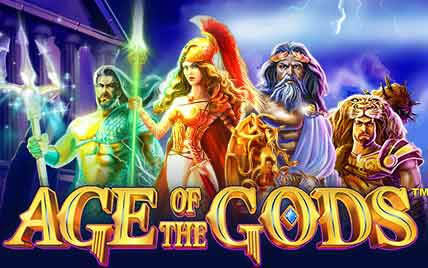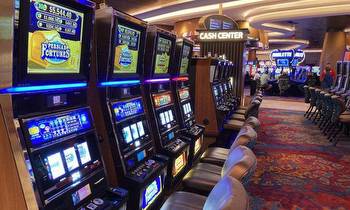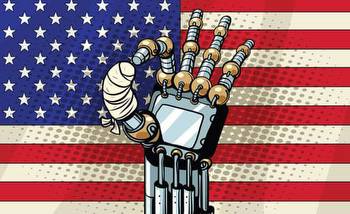Class Action Says Amazon Conspired with Online Casino Apps to Operate Illegal Gambling Scheme

A proposed class action out of Washington alleges Amazon.com has conspired with numerous online casino apps to operate an illegal internet gambling scheme through which it exploits users and “reap[s] billions in profits.”
Want to stay in the loop on class actions that matter to you? Sign up for ClassAction.org’s free weekly newsletter here.
The 28-page lawsuit claims that Amazon, in violation of Washington state law, which prohibits online gambling, has “knowingly” participated in an unlawful gambling enterprise by promoting Las Vegas-style social casino applications on its app store and brokering all in-app transactions in exchange for “a share in the gamblers’ losses.” The “dangerous partnership” is mutually beneficial, as the social casino operators rely on Amazon to access a wide consumer base, advertise their games and handle all virtual chip purchases or redemptions, the suit contends.
On the other hand, Amazon depends on the developers to build “profit-driven and addictive” apps on its platform that generate substantial revenue for the company, the case relays.
The complaint charges that without Amazon’s help, the gambling apps would not succeed in targeting, retaining and profiting from users at such a high level.
“Because Amazon is the center for distribution and payment, social casinos gain a critical partner to retain high-spending users and collect player data, a trustworthy marketplace to conduct payment transactions, and the technological means to update their apps with targeted new content designed to keep addicted players spending money,” the filing says.
The suit alleges that this apparent scheme has allowed Amazon to rake in billions of dollars “on the backs of consumers,” some of whom have lost hundreds of thousands of dollars on the apps or dealt with depression, divorce and other emotional hardship as a result.
Gambling apps’ success is “inextricably entwined with Amazon,” lawsuit claims
According to the suit, social casinos are extremely lucrative because they blend the addictive features of conventional slot machines with “the power of Amazon to leverage big data and social network pressures,” making it easier to target and exploit vulnerable individuals “prone to addictive behaviors.”
“By moving their casino games directly onto the phones and computers of players, and by leveraging an innocuous-sounding ‘free-to-play’ model, social casino companies, along with Defendant Amazon, have found a way to smuggle slot machines into the homes of consumers throughout the United States, 24 hours a day, 7 days a week, and 365 days a year,” the case stresses.
As the complaint tells it, a user can buy virtual chips or tokens directly through the social casino apps or purchase Amazon Coins—the defendant’s own online currency—that can be redeemed for chips on the gambling apps. Each Amazon Coin is valued at approximately $0.01, the filing adds.
Unlike brick-and-mortar casinos, however, the online apps do not let users cash out their chips but instead allow tokens to be used only for additional play, the lawsuit shares. In addition, the suit alleges, while traditional slot machines must randomize their results, social casino apps “tailor” wins and losses in a way that “maximize[s] addiction” and, therefore, profits.
“In other words, social casinos are not just illegal under Washington law, but they would not be legal slot machines under any state law as they cheat players out of a legitimately randomized slot machine experience,” the case argues. “Not only can players never actually win money, but their financial losses are maximized by deceptive gameplay tweaks that would never be allowed in a physical slot machine.”
Despite being aware of the illegal nature of social casinos, Amazon plays its part in the alleged scheme by providing targeted advertising services and a suite of developer tools to help the apps “target high-spending users and activate non-users alike,” the complaint contends. Per the filing, the company also obtains and shares with app operators specific data about users’ activity on its platform, such as purchase and browsing history, subscription details and more.
The lawsuit further claims that because Amazon acts as a “bank” for the online casinos, it is “entirely aware” that some users have spent hundreds of thousands of dollars on the apps.
“Amazon’s consumer spending metrics are spectacularly comprehensive: there is no high-spending consumer whose habits, buys, and losses are not intimately tracked by Amazon,” the suit charges.
To make matters worse, in exchange for distribution, advertising and payment services, the defendant takes a 30 percent commission on every user transaction and wager—a hefty cut that has generated billions of dollars in revenue for the company, the case claims.
“By comparison, the ‘house’ at a traditional casino only takes 1 to 15 percent, while also taking on significant risk of loss in its operation,” the complaint states. “Amazon’s 30 percent take, on the other hand, is guaranteed for its ability to act as the casino ‘house’ and broker.”
The filing alleges that despite understanding state law and being “keenly aware” of the deceptive nature of online social casinos, Amazon continues to promote the apps, broker all payments and reap the financial benefits of the illegal gambling enterprise.
Which social casino apps are mentioned in the case?
Per the lawsuit, the online casino apps offered by Amazon that constitute illegal online gambling under Washington law include at least:
Who’s covered by the lawsuit?
The suit looks to represent anyone in the United States who has purchased and lost chips by wagering at an allegedly illegal social casino via the Amazon platform.
I’ve lost chips on a social casino app offered by Amazon. How do I join the lawsuit?
Typically, you don’t need to do anything to join or be included in a proposed class action lawsuit when it’s first filed. It’s usually only if and when the case settles that those covered by the deal—called class members—would need to take action. If the suit reaches a settlement, class members may receive direct notice of the deal via email and/or regular mail with instructions on the next steps and their legal rights.
Class action lawsuits often take months or even years to be resolved, so it pays to be patient.
In the meantime, if you’ve purchased and lost virtual chips on a social casino app, or simply want to stay in the loop on class action lawsuit and settlement news, sign up for ClassAction.org’s free weekly newsletter.


































